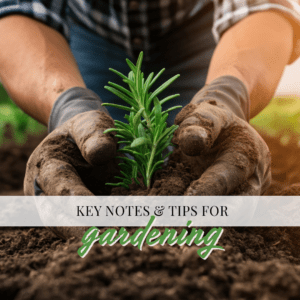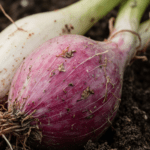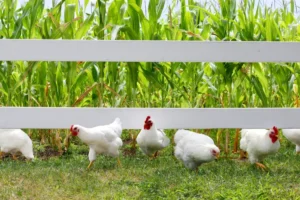 Improve your health with a homegrown organic garden!
Improve your health with a homegrown organic garden!
As the growing season approaches, there’s no better time to start your organic garden.
“Organic gardening for health and sustainability”—grow fresh, chemical-free produce while enriching soil, conserving water, and promoting eco-friendly practices. Not only will you enjoy fresh, chemical-free produce, but you’ll also improve soil health and promote sustainability.
Know Your Land
Before you start planting, it’s essential to assess your climate, soil, and microclimates. Understanding these factors will help you choose plants that thrive in your specific environment. Additionally, the USDA Hardiness Zone chart can serve as a valuable guide in determining the best crops for your area. To set your garden up for success, be sure to test your soil in the fall. This allows ample time to apply organic amendments and improve soil health before spring planting begins.
Plan Smart, Start Small
When starting out, it’s best to begin with a manageable plot and gradually expand as you gain experience. Not only does this make the process less overwhelming, but it also helps you fine-tune your gardening skills. Furthermore, implementing techniques like companion planting and crop rotation can improve soil balance and naturally deter pests. By growing a variety of seasonal crops, you’ll ensure a continuous and diverse harvest throughout the year.
Feed Your Soil Naturally
For a thriving garden, healthy soil is key. One of the best ways to enrich it is by composting kitchen scraps, grass clippings, and leaves. This creates nutrient-rich soil that supports strong plant growth. In addition, applying mulch helps retain moisture, prevents erosion, and suppresses weeds—making garden maintenance much easier. During the off-season, consider planting cover crops like clover, which naturally replenish soil nutrients and improve overall fertility.
Water Wisely
Proper watering is essential for plant health, but it’s important to do so efficiently. Using irrigation methods such as drip systems or soaker hoses conserves water while also reducing the risk of plant diseases. Additionally, collecting rainwater in barrels provides a sustainable, cost-effective way to keep your garden hydrated while reducing dependence on municipal water sources.
Organic Pest & Weed Control
Keeping pests and weeds under control doesn’t have to mean resorting to chemicals. Instead, encourage beneficial insects like ladybugs, which naturally help reduce harmful pests. Additionally, natural remedies such as neem oil and garlic spray serve as effective alternatives to synthetic pesticides. To further minimize weed growth, apply mulch or plant ground cover crops, which act as a protective barrier against unwanted weeds.
Harvest & Sustain
Once your crops reach peak ripeness, it’s time to harvest for the best flavor and nutritional value. To avoid waste and enjoy your homegrown produce year-round, consider preserving surplus harvests by drying, canning, or freezing them. Looking ahead, maintaining a thriving garden year after year requires thoughtful practices like crop rotation and regularly replenishing organic matter in the soil. These steps ensure long-term sustainability and continued productivity.
Starting a home garden not only boosts self-sufficiency and sustainability but also fosters a deeper connection with nature. By taking the time to understand your land, nurture your soil, and adopt eco-friendly gardening techniques, you can enjoy fresh, nutritious produce while making a positive impact on the environment.
Now is the perfect time to start preparing for a successful growing season! With careful planning and a little patience, your garden will flourish—bringing you an abundance of fresh food and a healthier, more sustainable lifestyle.

 Appliances Included – Stove, Dishwasher & Microwave
Appliances Included – Stove, Dishwasher & Microwave Monthly Rent: $2,000
Monthly Rent: $2,000 Tenant responsible for utilities & lawn care
Tenant responsible for utilities & lawn care


 Features you’ll love:
Features you’ll love: 807 Spanish Trail Drive, Granbury, TX
807 Spanish Trail Drive, Granbury, TX

